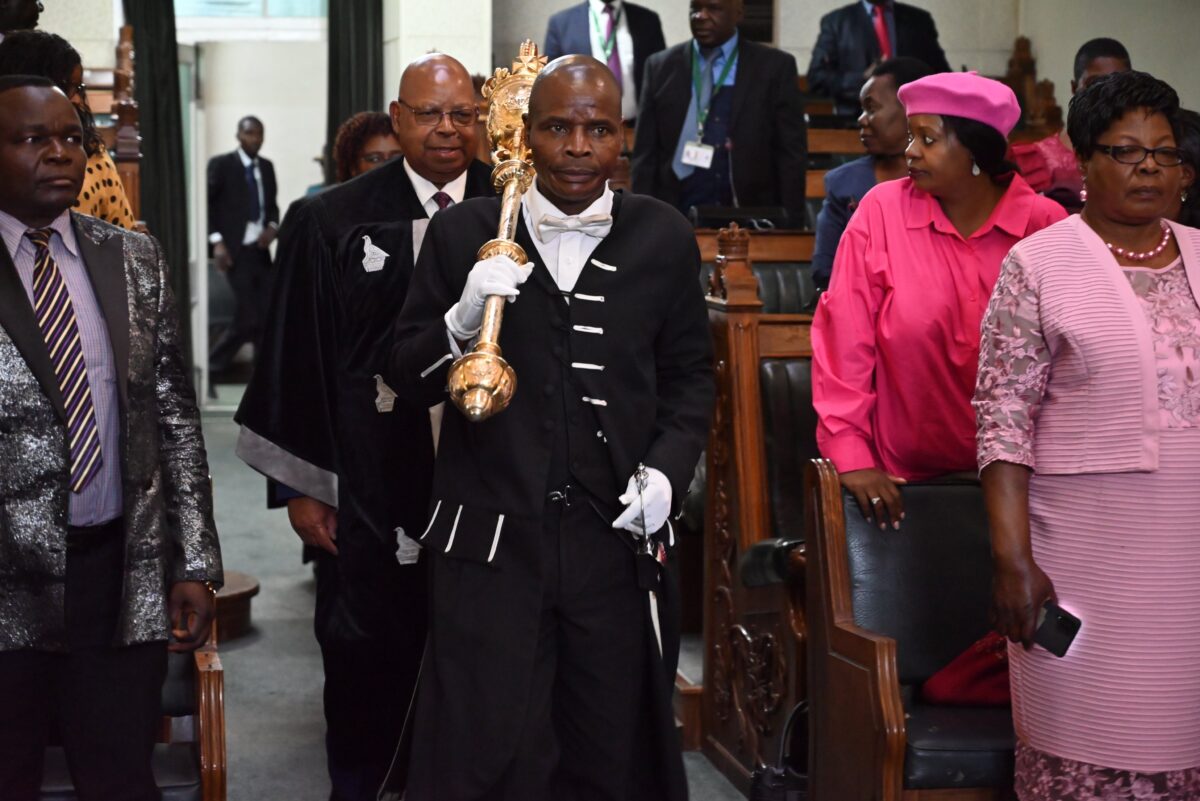HARARE – National Assembly speaker Jacob Mudenda has announced the dissolution of Zimbabwe’s 9th parliament since independence to pave way for the election of new legislators who shall constitute the country’s next parliament.
Zimbabweans this Wednesday troop to their different polling stations in their millions throughout the country to elect a new president, members of parliament and councillors whose term of office shall last for five years from swearing in.
Addressing the outgoing legislature on Tuesday, Mudenda commended the ninth parliament for seeing “ground- breaking” legislation that was passed in both the national assembly and senate.
He said the outgoing parliament recorded an increase of 38 percent in the number of Bills passed; that is, from 50 in the eighth parliament to 69 in the latest parliament.
“Of historic note was the Constitutional Amendment Number 2 Bill which, among other things, reinforced the national commitment to mainstreaming gender equality and youth representation in the decision-making processes of the nation,” Mudenda said.
“This palpable milestone was achieved through the extension of the women’s quota in the national assembly by an additional term to 2033, the allocation of 30 percent local authority seats to female councillors as well as the inclusion of a youth quota of 10 members in parliament in the national assembly.
“Furthermore, a plethora of laws were enacted, including the Marriages Act, the amendment to the Health Services Act and the Education Amendment Act which, inter alia, promoted access to education for pregnant school children, in pursuit of leaving no place and no one behind as well as giving impetus to the heritage-based education philosophy.
“Parliament recorded a first when both houses of parliament passed the Institute of Chartered Loss Control and Private Security Management Bill, a private Member’s Bill piloted by honourable Joshua Murire.”
The speaker said the outgoing parliament also recorded considerable improvement in the quality of debates.
“Turning to its oversight function, our 9th Parliament was indeed defined by its countless Committee enquiries, meticulously crafted oral evidence sessions and incisive questions posed both with and without notice in fulfilment of its overnight role.
“Consequently, parliament observed an increase in compliance by the Executive in the submission of peremptory statutory returns to parliament.
“The compliance rate rose to 78 percent, up from a paltry 3 percent recorded at the beginning of the 9th parliament.
“Furthermore, our impact in following up on the Auditor General’s Reports resulted in the establishment of the Central Internal Audit Unit in the Ministry of Finance and Economic Development which was tasked with the mandate to produce Treasury Minutes that are essential in providing an effective tracking and response mechanism on the Public Accounts Committee (PAC) recommendations.”
Mudenda also said parliament performed extremely well in pursuit of its representative function as evidenced by the number of Committee recommendations adopted by the Executive.
“Additionally, mention should be made of the remarkable feat achieved in the employment of the Constituency Development Fund (CDF).
“I trust that the 10th parliament will maintain this momentum and ensure the sustainability of the CDF under a legal framework yet to be promulgated.
‘I have the honour and privilege to wish you well in your future endeavours in life, whether or not you make it into 10th Parliament,” said Mudenda.
















